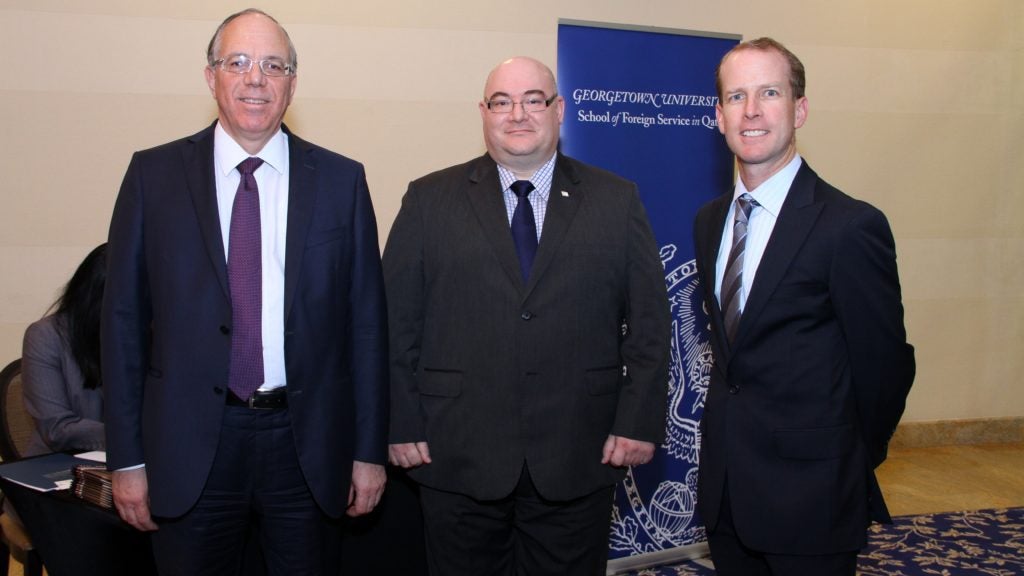A Successful Georgetown Young Leaders Seminar Comes to a Close

Georgetown University’s School of Foreign Service (GU-Q) 2nd annual Georgetown Young Leader’s Summit (GYLS), an intensive 3-day workshop which brought together young leaders from Qatar and MENA, South and Southeast Asia to collaborate on the critical international relations issues facing the region today, came to a close Monday, April 8.
Jim Seevers, Interim Director of the Institute for the Study of Diplomacy and director of the GYLS program and its parent program, the Georgetown Leadership Seminar, said “We’ve spent the past three days with an incredibly talented and diverse group of young leaders from the worlds of business, finance, NGOs, healthcare, government, consulting and teaching and politics. They both learned a great deal and enriched our community — including Georgetown faculty, students, and others in Doha — with their ideas and insights. This second conference proved a confirmation of last year’s rousing success.”
The dynamic group of young participants, chosen through a careful nomination process to identify the best candidates, engaged with Georgetown faculty and other experts on vital global issues. Topics included conflict prevention in the Middle East, presented by Dr. Ibrahim Sharqieh, GU-Q teaching fellow and Deputy Director of the Brookings Doha Center, and health care by Dr. Faleh Mohamed Hussain Ali, Assistant Secretary General for Policy Affairs, Supreme Council of Health, who dialogued with the young leaders on the issues surrounding equity in Qatar’s healthcare system. Other topics included climate change, economic development, information flows, water scarcity, and the ongoing developments of the Arab Spring.
A feature of the conference which was widely praised by both the attendees of last year’s inaugural conference, and this year’s participants, was the opportunity to both create and expand existing networks, a vital relationship-building component of community engagement. Afaf Khoshman, a media analyst from Jordan working at the National Democratic Institute (NDI), reflected on this, saying “I’m learning about Arab media and the Arab world and the lectures and topics were really inspiring for me in this regard. But it was learning how to approach others, learning that it’s not as difficult as I had expected, that has given me the confidence to know that I can reach civil societies, I can interact with world embassies, even the highest government offices. I can definitely say I’ve been changed by this experience.”
The highlight of the conference was a formal dinner on Saturday evening featuring a keynote address given by Mr. Mahmoud Qutub, Executive Director for Strategy and Programme Performance, Qatar 2022 Supreme Committee, the organization responsible for coordinating government agencies to ensure infrastructure and development projects are delivered in readiness for the 2022 FIFA World Cup. Addressing the emerging leaders, diplomatic community guests, local business leaders, and other attendees, he said that “For you, our young leaders, 2022 may seem a distant future, and you may be concerned with more immediate obstacles and challenges, but I have no doubt that your ideas, enthusiasm, and innovative spirit create the ideal foundation locally and regionally to host the 2022 FIFA World Cup. You are an important part of our team.”
This program—successfully launched in April 2012—complements the Georgetown Leadership Seminar in Washington, D.C.—, a premier executive education and network building program for senior leaders from the public, private, and non-profit sectors all over the world.